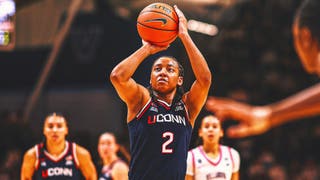Philadelphia, PA – Last Sunday was one of those days in the NFL.
Three significant starting quarterbacks went down with concussions, Philadelphia' Michael Vick, the 49ers' Alex Smith and Chicago's Jay Cutler.
The Eagles lost Vick early in the second quarter of their latest loss to Dallas, while the mighty 49ers had to settle for kissing their sister after second-year man Colin Kaepernick was forced to take over for Smith against the Rams.
Meanwhile, Cutler was knocked silly in the second quarter of a nationally televised loss to Houston by a helmet- to-helmet shot from the Texans' Tim Dobbins, one which eventually cost the linebacker $30,000.
The handling of the Cutler concussion was particularly disturbing.
Despite immediately grabbing the sides of his helmet after getting popped, a sure indication his bell was rung, Cutler was allowed to stay in the game until halftime, running seven more plays and visibly getting hit in the head on at least one more occasion.
After the game Bears coach Lovie Smith had no problem offering his laughable medical opinion despite the fact there is absolutely no way he could have been properly briefed by his staff.
"Didn't have any symptoms, no," Smith said when asked why Cutler was allowed to stay in. "There were a lot of hard hits out there today. You can't start taking guys out for that."
You can't?
Tell that to the NFL brass which was probably cringing on Park Avenue while listening to Smith utter an incredibly foolish statement in today's politically correct environment.
To be fair Smith, like most football coaches, is an old school guy and thinks players should play. And let's not pretend Cutler didn't want to stay in the game and beat the Texans on Football Night in America. Whatever you think of the enigmatic Chicago signal-caller, understand he wasn't looking to exit stage left and he certainly wasn't pushed by Smith or anyone else to stay in the contest.
The NFL is and always has been about winning now -- not about repercussions 20 years down the line.
But there is a far bigger issue here -- one that could take down a $9 billion dollar industry.
"He took some shots," an incredibly ill-prepared Smith said at his post-game presser when talking about Cutler. "It (a concussion) could happen any time. We just know that at that half, that's when he did have some symptoms."
So exactly what were the symptoms Dr. Smith?
"Whatever the symptoms are for a concussion," Smith stammered. "I mean, I wasn't in there. I'm going to let the doctors handle that."
That's probably a good idea moving forward.
Here's hoping we don't read about Cutler suffering from dementia or ALS in the year 2032 but can we really rule it out?
These days, most NFL officials feign innocence regarding the league's past as it relates to brain trauma, a legal necessity since the NFL is currently embroiled in numerous lawsuits filed by former players and their family members.
The league's Mild Traumatic Brain Injury Committee wrote as late as 2005 that no NFL player experienced chronic brain damage from concussions, a public relations spin that's about to be blown up by brothers Steve Fainaru and Mark Fainaru-Wada, the investigative reporters made famous for what came to be known as the BALCO scandal, a story that implicated some of the top athletes in America, including Barry Bonds, in the widespread use of performance- enhancing drugs.
Fainaru and Fainaru-Wada, in consort with PBS' Frontline, have uncovered documents from the NFL's retirement board indicating the league paid at least $2 million in disability benefits to Steelers Hall of Fame center Mike Webster as well as at least two others for head injuries suffered from their NFL careers.
Webster, perhaps the greatest center in NFL history, suffered from amnesia, dementia, depression, and acute bone and muscle pain before dying in September of 2002 at the age of 50.
After his death, Webster was diagnosed with chronic traumatic encephalopathy, a neurodegenerative disease and some doctors prone to embellishment claim he had been in the equivalent of "25,000 automobile crashes" in over 25 years of playing football at the high school, college and professional levels.
Some have called the discovery of the retirement board paying Webster as a smoking gun, one which certainly will be used against the NFL in the pending lawsuits.
NFL spokesman Greg Aiello thinks otherwise, pointing out the retirement board is actually independent, and that its rulings "are not made by the NFL or by the NFL Players Association."
The real question for the NFL remains the Watergate inspired, "What Did They Know, And When Did They Know It?"
Concussion expert Matt Chaney points out that many NFL doctors publicly discussed potential long-term brain damage in football players in the 1990s and the NFL finally established a concussion committee in 1994.
So why the denials all the way until 2005?
The NFL has always favored public relations over all else.








































